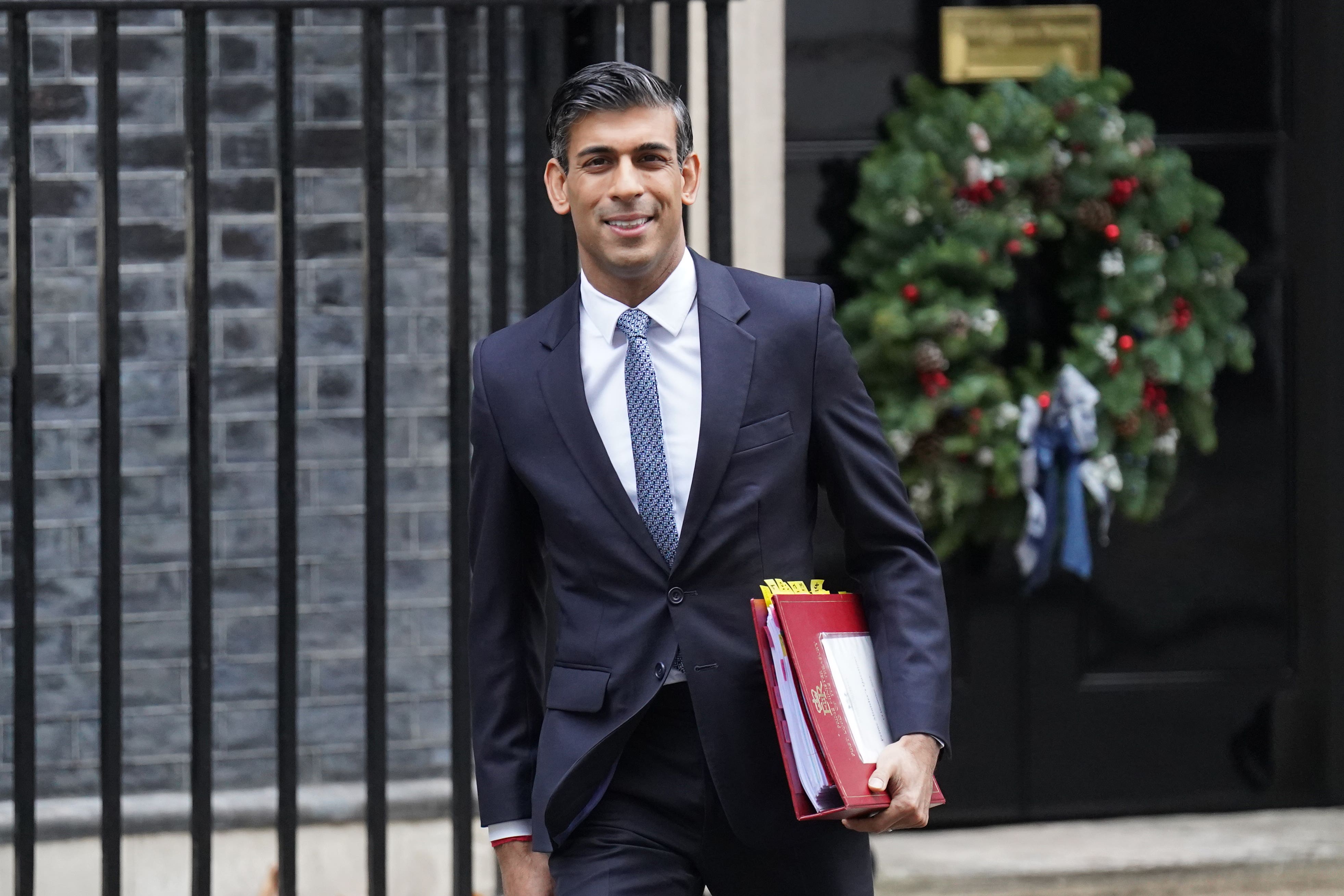
There has been “radio silence” from the government on preventing a fresh wave of strikes, according to rail union leader Mick Lynch – who accused ministers of “sitting on their hands”.
Union chiefs have said that only a change in stance will end the rail dispute, as passengers prepare for five days of disruption this week because of fresh strikes by tens of thousands of workers.
Members of the Rail, Maritime and Transport union (RMT) at Network Rail and 14 train operators will stage two 48-hour walkouts from Tuesday and Friday while drivers in the Aslef union will strike on Thursday.
“We don’t want disruption, we want a settlement,” said Mr Lynch, RMT general secretary, who claimed on Monday that railway bosses were “in despair” at the government’s position.
“The executives who run the industry day on day are in despair at what the government is making them say in these talks,” he told BBC Radio 4’s Today programme.
It comes as union leaders expressed defiance over an anti-strike “crackdown”, with Rishi Sunak said to be preparing to put legislation to curb industrial action before MPs as soon as this month.
The prime minister could push for a vote on proposals for minimum staffing levels during public sector strikes within weeks, according to reports – though he could wait up to six months for more far-reaching proposals.
The “slimmed-down” version of the bill that No 10 is considering bringing forward is not thought to include an outright ban on strikes by ambulance drivers and other emergency workers, according to The Telegraph.
But Dave Penman, general secretary of the FDA civil service union, said the so-called crackdown on strike rules would not stop the ongoing wave of industrial action – warning the government against “tinkering” with laws.
The union leader told Times Radio: “They might be able to have some minor restrictions around the impact of some of these strikes, but the strikes are going to continue.”
He added: “If the government want to resolve this, they need to address those issues [pay and conditions], not tinker about with what are still some of the most draconian laws around strikes in the Western world.”
A government spokesperson said that details of the legislation would emerge in “due course”, adding: “Anything we bring forward will rightfully balance the rights of workers to strike, with the rights of the public to get on with their daily lives and keep people safe.”
The Trades Union Congress (TUC) has warned it could launch legal action against the government if tries to restrict industrial action rights.

On this week’s RMT strike days, around half of the network will shut down and only about 20 per cent of normal services will run. Trains that do run will start later and finish much earlier than usual, with services typically running between 7.30am and 6.30pm.
The train drivers’ strike on 5 January will affect 15 operators and will result in even fewer services running, with some companies operating “very significantly reduced” timetables.
Mr Lynch said he had received “radio silence” since mid-December. “They keep saying that they’re facilitating a deal. And I think it’s absolutely the opposite to that,” he told Today.
He added: “The government simply will not give a mandate to the employers, Network Rail and the train operators that will allow this deal to be resolved. They’ve put a block on the deal and they’re an obstacle rather than a facilitator.”
Daniel Mann, director of industry operations at the Rail Delivery Group, said: “No one wants to see these strikes go ahead and we can only apologise to passengers and to the many businesses who will be hit by this unnecessary and damaging disruption.
He added: “This dispute will only be resolved by agreeing [to] the long overdue reforms to working arrangements needed to put the industry on a sustainable footing, rather than unions condemning their members to losing more pay in the new year.”
Aslef general secretary Mick Whelan said his union is “in it for the long haul”, adding: “We don’t want to go on strike but the companies have pushed us into this place.
“The train companies say their hands have been tied by the government while the government, which does not employ us, says it’s up to the companies to negotiate with us,” the union leader said. “The companies, or this Tory government which stands behind them, could end this dispute now by making a serious and sensible pay offer.”
A Department for Transport spokesperson said: “Passengers have rightly had enough of rail strikes and want the disruption to end. Unions should step back from this strike action so we can start 2023 by ending this damaging dispute.”







